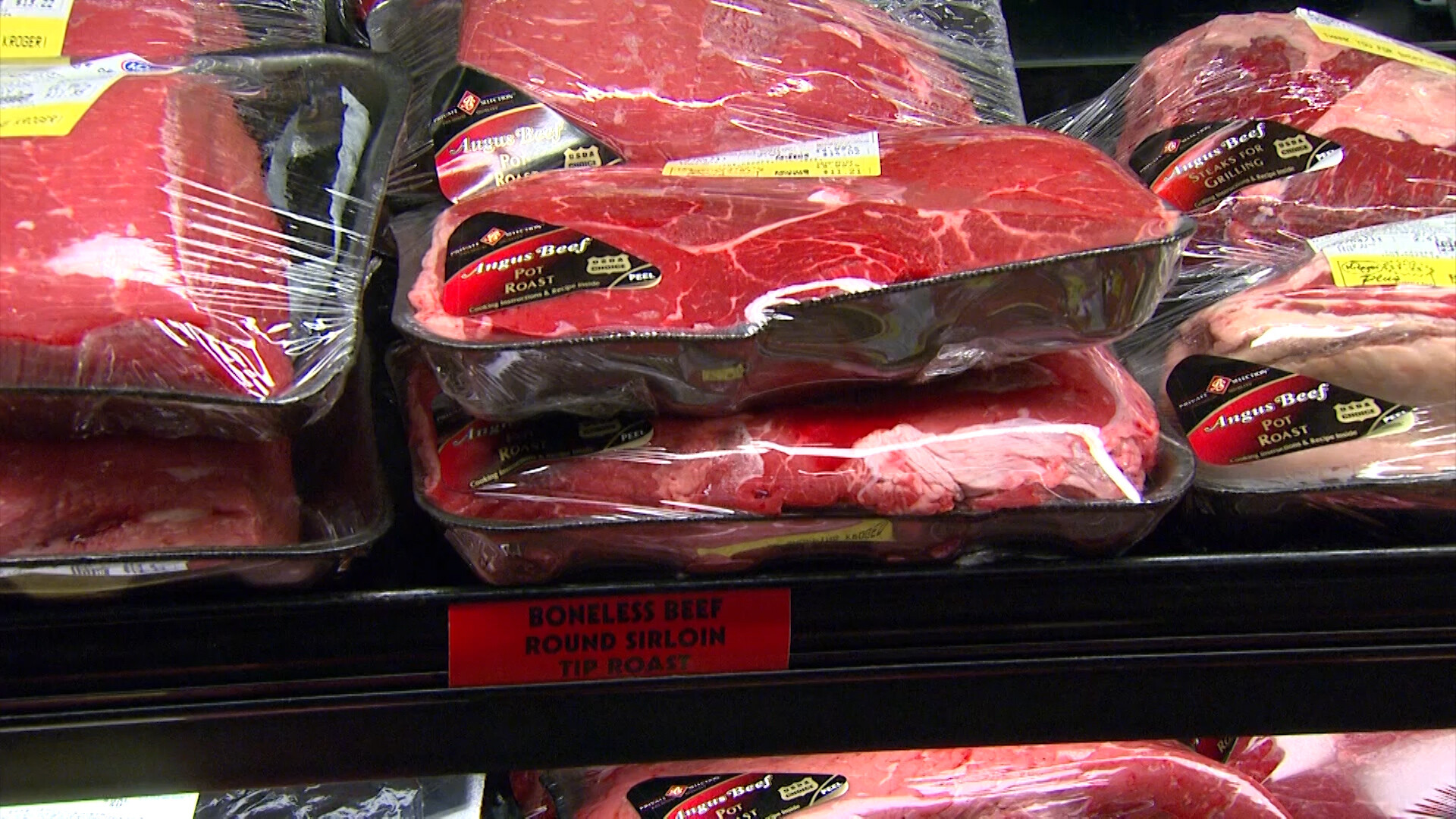Carnivore Culture: Why Americans Still Believe Meat Is Their Nutritional Superhero
Lifestyle
2025-03-28 00:00:00Content

Meat: A Cornerstone of American Dietary Choices
For many Americans, meat isn't just a food—it's a fundamental part of their cultural identity and approach to nutrition. Despite growing conversations about plant-based diets and health trends, a significant portion of the population continues to view meat as an essential component of a balanced and satisfying diet.
Recent surveys reveal that most Americans perceive meat consumption as more than just a meal choice; it's deeply connected to their sense of wellness and lifestyle. Many believe that protein-rich meats contribute to muscle strength, energy levels, and overall physical performance. This perspective is particularly strong among fitness enthusiasts and those committed to active lifestyles.
Cultural traditions also play a substantial role in meat's enduring popularity. From backyard barbecues to holiday gatherings, meat-centered meals represent more than nutrition—they symbolize community, celebration, and shared experiences. Grilling steaks, roasting turkeys, and preparing classic meat dishes are rituals that connect generations and reinforce social bonds.
While nutritional debates continue about meat's health implications, many Americans remain confident in its dietary benefits. They view high-quality, lean meats as a natural source of essential nutrients like protein, iron, and vitamin B12, believing these contribute to maintaining robust health and vitality.
The meat industry has also adapted, offering more diverse and health-conscious options. From grass-fed beef to organic chicken, consumers now have access to products that align with growing wellness awareness, further solidifying meat's place in the American diet.
Meat Consumption: A Deep Dive into American Dietary Preferences and Cultural Identity
In the complex landscape of modern nutrition, Americans continue to navigate a nuanced relationship with meat consumption, balancing personal preferences, health considerations, and cultural traditions that have long defined their culinary experiences.Unraveling the Meat-Centric American Palate: More Than Just a Dietary Choice
Cultural Significance of Meat in American Cuisine
The American dietary landscape is profoundly shaped by a deep-rooted connection to meat consumption that transcends mere nutritional requirements. Historically, meat has symbolized prosperity, abundance, and cultural identity, representing more than just a protein source. From backyard barbecues to family gatherings, meat-centered meals have been integral to social interactions and communal experiences across diverse American communities. Generations of culinary traditions have embedded meat as a central component of national cuisine, reflecting complex socioeconomic narratives and regional variations. The Midwestern cattle ranches, Southern barbecue traditions, and Southwestern grilling cultures all contribute to a multifaceted meat consumption narrative that goes beyond simple dietary preferences.Nutritional Perspectives and Health Considerations
Contemporary Americans increasingly approach meat consumption through a nuanced lens of nutritional science and personal wellness strategies. While traditional perspectives celebrated meat as a primary protein source, modern dietary approaches incorporate more sophisticated understanding of balanced nutrition, protein alternatives, and potential health implications. Nutritionists and health professionals continue to explore the intricate relationship between meat consumption and overall health outcomes. Research suggests that quality, preparation method, and portion control play crucial roles in determining the potential benefits and risks associated with meat intake. Lean proteins, grass-fed options, and mindful consumption have emerged as key considerations for health-conscious individuals.Economic and Environmental Dimensions of Meat Production
The meat industry represents a complex ecosystem of agricultural practices, economic opportunities, and environmental challenges. American consumers are becoming increasingly aware of the broader implications of their dietary choices, considering factors such as sustainable farming, animal welfare, and carbon footprint. Technological innovations in agricultural practices, including lab-grown meat and plant-based alternatives, are reshaping traditional meat production paradigms. These emerging technologies offer potential solutions to environmental concerns while maintaining the cultural significance of meat in American cuisine.Psychological and Social Dynamics of Meat Consumption
Meat consumption extends beyond nutritional and economic considerations, deeply intertwining with psychological and social dimensions of human experience. For many Americans, meat represents comfort, tradition, and a sense of cultural belonging. Sociological studies reveal complex emotional connections between individuals and their dietary choices. The act of consuming meat often transcends biological necessity, serving as a powerful mechanism for social bonding, expressing personal identity, and maintaining cultural continuity.Future Trends and Evolving Dietary Landscapes
The future of meat consumption in America appears poised for significant transformation. Emerging generations demonstrate increasingly flexible attitudes toward dietary choices, embracing plant-based alternatives, flexitarian approaches, and more conscious consumption patterns. Technological advancements, changing environmental awareness, and evolving nutritional science are likely to continue reshaping Americans' relationship with meat. The ongoing dialogue between traditional culinary practices and innovative dietary approaches promises a dynamic and nuanced future for meat consumption.RELATED NEWS

Craft Beer Delight: Bunker Brewing's Chick-a-Dee Hits All the Right Notes

Royal Revelations: Meghan Markle Unveils Intimate Family Narrative in Netflix Docuseries






